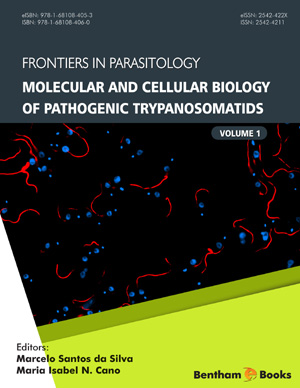Abstract
The genome is the source of life, providing the information needed to direct all aspects of organismal function. Propagation of life requires copying of the genome and faithful transmission from parent to offspring. Many challenges confront genome propagation, including ensuring the accurate and complete copying of the DNA, circumventing impediments to DNA replication, and maintaining genome integrity in the face of myriad insults and during periods of cellular quiescence. Just as importantly, the genome must be allowed to change, either incrementally through small mutations in sequence or by large-scale rearrangements. Such changes not only drive evolution, but can be integral components of an organism’s life cycle. In this chapter we consider the rapidly growing body of knowledge on how the genomes of kinetoplastid parasites are maintained, by describing the range of genome repair and damage tolerance pathways that operate. We focus on Trypanosoma brucei, Trypanosoma cruzi and Leishmania, three important human and animal pathogens, but we believe the lessons learned from the study of genome maintenance in these genetically tractable parasites are applicable widely, not only to other parasites but throughout biology.
Keywords: Base excision repair, DNA repair, DRP lyase activities, Genome integrity, Homologous recombination, Microhomology-mediated end-joining, Mismatch repair, Non-homologous end-joining, Nucleotide excision repair, Translesion DNA synthesis.






















